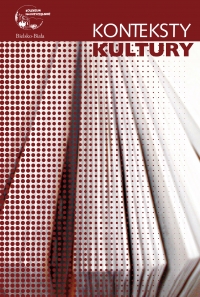Elementy tradycji ludowej w międzywojennej poezji Stanisława Młodożeńca
Elements of folk tradition in inter-war poetry by Stanisław Młodojaniec
Author(s): Joanna KulczyńskaSubject(s): Language and Literature Studies, Studies of Literature, Polish Literature
Published by: Wydawnictwo Uniwersytetu Jagiellońskiego
Keywords: Stanisław Młodożeniec; poezja międzywojenna; folklor w literaturze; futuryzm; regionalizm; kultura lokalna
Summary/Abstract: In the inter-war poetry of Stanisław Młodożeniec, the superior categories of futurism, such as topicality, everydayness and reality, are enriched with an universal dimension, formulated through themes and motifs drawn from the Polish folklore. The artistic language of the author of Niedziela distinguished itself from the background of the Polish avant-garde output due to his use of dialecticisms (including the Sandomierz dialect) and sound effects revealing inspiration by rhythmicity of a folk song and dance. Other examples of used elements of folklore are quotations or allusions to songs and proverbs. Genre references specific for the old folk culture include: song, ballad, fable, legend, rhapsode and beggar’s song. The poetic reflection often plays the role of a didactic message, stressing the value of the local culture, preserved in customs, beliefs and mindsets, as well as the significance of social standards binding a community. The study of the eponymous issue has been performed mainly on the basis of poetic works from the collections by Stanisław Młodożeniec: Kreski i futureski (Kraków 1921), Niedziela (Warszawa 1930), Futuro-gamy i futuro-pejzaże (Warszawa 1934).
Journal: Konteksty Kultury
- Issue Year: 12/2015
- Issue No: 1
- Page Range: 15-32
- Page Count: 18
- Language: Polish

